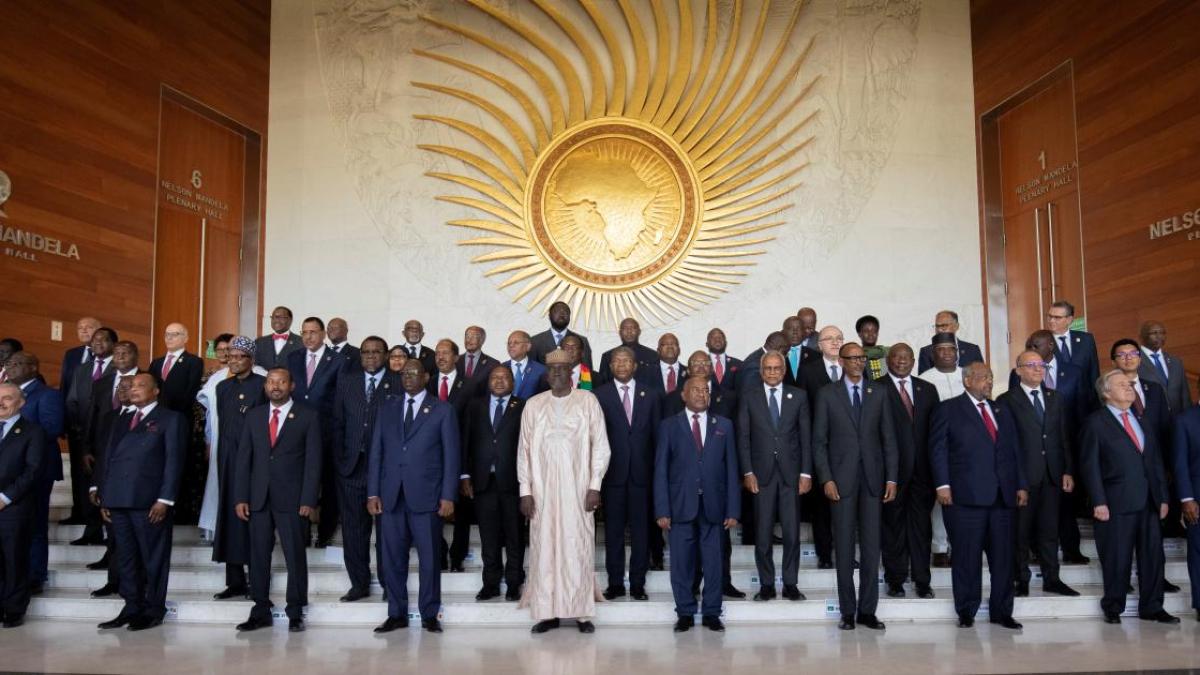I eagerly followed the events of the 36th African Union Summit and recently the auspicious visit of French President Macron to African countries, and I could not forget the fact that the IMF, the World Bank or any other UN body concerned with economic development and development will never develop real plans for Africa's development and renaissance, because a strong, united Africa that owns its decisions is an idea categorically rejected by the West, which has always paid lip service to the values of justice, equality, democracy and acceptance of the other.
The existence of the colonizer in Africa did not end when those wretched countries declared their independence, colonialism still exists today, not in the old traditional ways but in elegant and deceptive ways but more vicious and deadlier. Colonialism today is a robbery of minds, will, economic resources and political decision, and it is an existential issue for the colonizer and not expansionist as it was in the past.
Colonialism, led by France as an example, which was and still is the tip of the spear in the side of Africa, depends in its economy almost entirely on Africa, so that if these supplies were cut off, France would have returned to the ranks of the defaulters of Third World countries. France prints the currency of 14 African countries and pegs their exchange rate to its current currency, the euro, and 12 of them are required to put 50% of their foreign exchange reserves with the French central bank, a significantly lower rate than it was years ago. France sets on behalf of these countries its fiscal and monetary policies such as exchange rate, interest rate and others to serve its agenda, and maintain the state of crisis and the faltering economy in those countries.
In addition to the rights to explore and produce oil and gas reserved to French companies that deal with these resources as if they were the national companies that own them because of tightly drafted contracts that made the owner the guest in his house, as well as the rights to explore for minerals, gold, uranium, precious stones and other resources that Africa abounds in and does not have the right to use. It is ironic that France has the fourth largest gold reserves in the world without a single mine on its territory, while Mali has more than 800 gold mines that produce about 65 tons of gold annually and does not have a single gram of gold as an official reserve.
It is also ironic that Africa, many of whose countries have suffered from famine, is the world's breadbasket, possessing agricultural and livestock wealth that, if properly developed and managed, would be sufficient to meet the needs of the whole world, not just the needs of a group of countries that have exploited them in the worst way.
Today, nations such as China, Russia, and even Turkey are racing for a share of African resources to take advantage of the waning French influence and the demise of Paris somewhat from the continent. Despite the political instability that most African countries still suffer from, unifying positions and giving priority to interests today has become an urgent necessity and an opportunity to start a new and economically prosperous phase if properly managed.
I believe that the African Union is the guarantee and umbrella through which African countries should move instead of looking for investment opportunities individually, through the preparation of a unified African strategic plan for economic development in the energy sector and the industrial sector in all its forms such as minerals, food and others. A results-based strategy through which what Africa aspires to reach is determined, and then investment initiatives are developed, according to a realistic gap analysis, that develop solutions to benefit from the resources of each country separately and the African system in general in a way that leads to integration and self-sufficiency.
There must be African economic development based on a strong export sector represented by a single negotiator that works for the common good of the entire system, and fairly promotes investment opportunities in countries such as Rwanda, Ethiopia, Nigeria, Senegal, and South Africa, as well as North African countries that are rich in untapped or depleted resources in economically unfeasible ways.
Correct strategic planning and joint action is the only and best way to achieve effective added value in Africa's economies, and according to this approach, betting on Africa in the future will be a successful bet by all standards.

